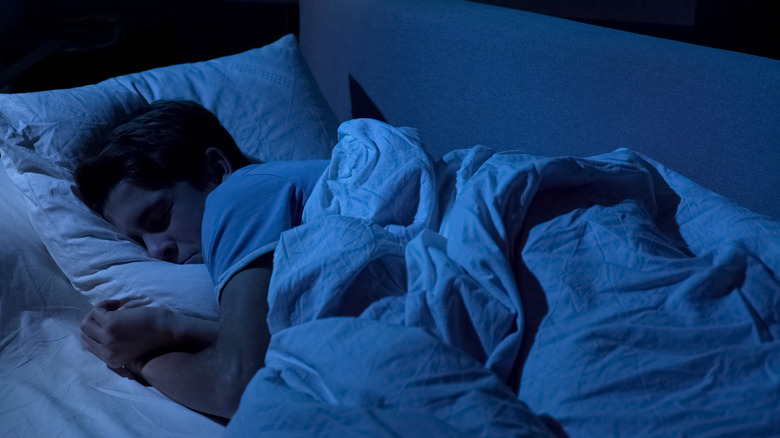Why Risk For Multiple Sclerosis Could Be Higher In Teenagers
There are lots of things that can put you at higher risk for multiple sclerosis, a disease that affects the brain and spinal cord (via Mayo Clinic). Things like being female, having a family history of it, and living in a temperate climate can all increase your likelihood of developing multiple sclerosis. But a 2023 study found that teens who get poor sleep are at higher risk for developing the disease, which typically comes on between the ages of 20 and 40 (via Healthline).
In multiple sclerosis, or MS, the immune system attacks the nerve fibers and their protective coverings, according to Johns Hopkins Medicine. This causes inflammation in the nerves which in turn causes damage to the nerves, leading to issues with how the nerves send messages to the brain. While symptoms can vary from mild to severe, typically they include fatigue, tingling, unsteadiness, numbness, blurry vision, and weakness. There are four different courses that MS can take, but the most common is called relapse-remitting MS, which affects about 90% of those diagnosed. This means that symptoms will present for a few days or weeks, followed by a period of weeks or months when the disease goes into remission.
Poor sleep in teens may increase the risk for MS
The new 2023 study published in the Journal of Neurology, Neurosurgery, and Psychiatry analyzed 2,075 people who had MS and 3,164 who didn't (via Healthline). Researchers compared participants' sleep patterns and found that in those who were 15-19 years old and slept less than seven hours per night, the risk of developing MS was 40% higher than in those who got seven to nine hours per night. In the same age group, those who reported getting poor-quality sleep were 50% more likely to develop MS. While poor-quality sleep and inadequate sleep were both associated with an increased risk of MS, the researchers from Stockholm University noted that sufficient restorative sleep was a protective factor against MS.
Adolescents need quality sleep just as much as young children, and according to a 2018 poll, 43% of parents say that their teens aren't getting enough sleep (via University of Michigan Health). Teens can work on getting enough quality sleep by staying off of electronics in the bedroom, keeping a regular sleep schedule and bedtime routine, limiting caffeine, getting homework and other tasks done earlier in the day, and having someone they can talk to about worries around school, work, and peers.


